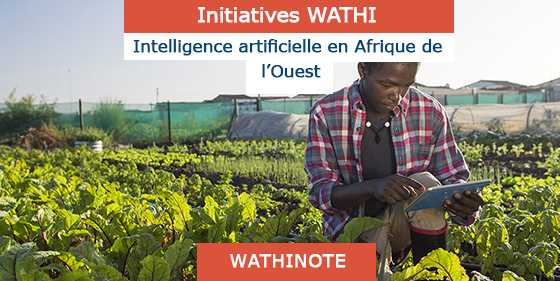

Author : Dave Gershgorn
Affiliated organization : OneZero
Site of publication : medium.com
Type of publication : Article
Date of publication : September 2019
Over the last three years, academics and industry researchers from around the African continent have begun sketching the future of their own A.I. industry at a conference called Deep Learning Indaba. The conference brings together hundreds of researchers from more than 40 African countries to present their work, and discuss everything from natural language processing to A.I. ethics.
In 2017, former classmates from South Africa’s University of Witwatersrand and a few close colleagues came together to found Indaba, which they named after a Zulu word meaning “an important conference or gathering.”
“How many accepted papers have at least one of its authors from a research institution in Africa? The answer: zero,” Indaba organizers wrote in a blog post. “Two entire continents are missing from the contemporary machine learning landscape.”
Deep Learning Indaba has become connective tissue for the African A.I. community — not only the space for the community to meet, but a part of the community itself. The conference forges relationships between researchers on the continent with a clear agenda: to build a vibrant, pan-African tech community — not through reinventing existing technologies, but by creating solutions tailored to the challenges facing the region: sprawling traffic, insurance claim payments, and drought patterns.
As Vukosi Marivate, an Indaba organizer and chair of data science at the University of Pretoria in South Africa, told me, “We need to find a way to build African machine learning in our image.”
How many accepted papers have at least one of its authors from a research institution in Africa? The answer: zero
As the preeminent A.I. conference in Africa, Indaba attracts significant attention from tech’s biggest players. American companies, including Google, Microsoft, Amazon, Apple, and Netflix, make up 11 of Indaba’s 34 sponsors.
It’s part of a trend in Silicon Valley firms making significant investments across the continent. Google sponsors organizations like Data Science Africa and the African Institute of Mathematical Sciences.
The appeal of investing in Africa is obvious. 75% of the continent still has no internet access. That’s a challenge for local populations, but also an investment opportunity for international tech firms. Establishing a presence in Africa now means building valuable relationships with users from the very start of their digital lives. Indaba organizers are well aware of the tension inherent in running an Africa-focused conference funded by American companies.
“A large part of the Indaba’s funding came from international organizations, and many of our international speakers came from international technology companies,” founders of Indaba wrote after the first conference. “This risks leaving the impression that the best work is happening in the large tech companies, and in countries outside the continent, and that one must leave the continent to have an impactful career in the field.”
That’s why organizers try to balance international sponsors with local ones, and highlight opportunities at African universities and tech companies.
“If you really want inclusion, fairness, and the distribution of knowledge for local relevance, then corporations should be willing to set up centers of excellence and create centers of knowledge around the world,” said Adekanmbi, chief transformation officer of South African telecom MTN, and the founder of Data Science Nigeria (DSN).
The appeal of investing in Africa is obvious. 75% of the continent still has no internet access
For many in Africa, partnerships with international tech giants are critical to conducting their work. Teki Akuetteh Falconer, former executive director of the Ghanaian Data Protection Commission and founder of Africa Digital Rights Hub, says that U.S. tech companies are some of the only organizations with aligned interest in expanding internet infrastructure and studying technological ecosystems.
Deep Learning Indaba is still looking to expand. A phrase that’s heard over and over from those interested in building the future of African artificial intelligence is “capacity.” To bring more people into the field on the continent means a greater legacy of researchers, with the capacity to teach the next generation.
Les Wathinotes sont soit des résumés de publications sélectionnées par WATHI, conformes aux résumés originaux, soit des versions modifiées des résumés originaux, soit des extraits choisis par WATHI compte tenu de leur pertinence par rapport au thème du Débat. Lorsque les publications et leurs résumés ne sont disponibles qu’en français ou en anglais, WATHI se charge de la traduction des extraits choisis dans l’autre langue. Toutes les Wathinotes renvoient aux publications originales et intégrales qui ne sont pas hébergées par le site de WATHI, et sont destinées à promouvoir la lecture de ces documents, fruit du travail de recherche d’universitaires et d’experts.
The Wathinotes are either original abstracts of publications selected by WATHI, modified original summaries or publication quotes selected for their relevance for the theme of the Debate. When publications and abstracts are only available either in French or in English, the translation is done by WATHI. All the Wathinotes link to the original and integral publications that are not hosted on the WATHI website. WATHI participates to the promotion of these documents that have been written by university professors and experts.
